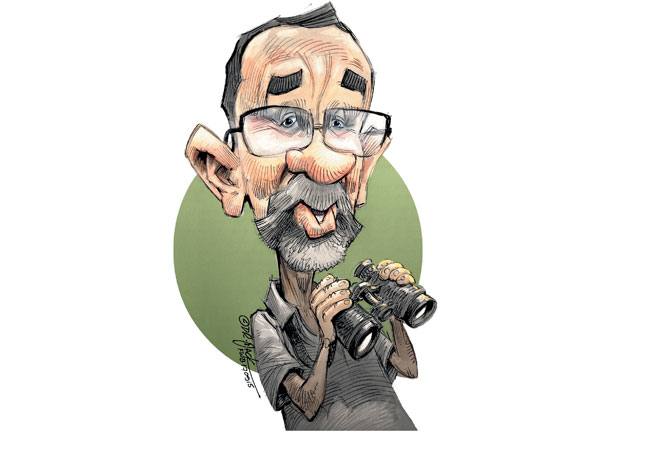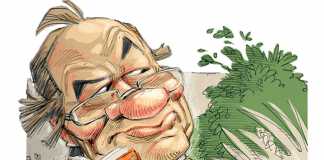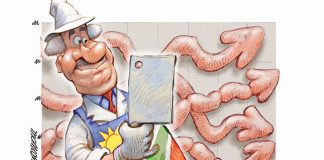
I first realised that climate change was a reality while on a trip to Iceland. We visited Vatnajökull, one of the largest glaciers in Europe by volume. It spans over 8 000km², averages 500m in depth, and has a total volume of about 4 500km3.
READ Conservation farming helps Zambian smallholders thrive
It was obvious that the glacier is melting. Moreover, it’s melting at an unprecedented speed, much faster than anybody predicted.
South Africa is also affected by climate change. I recently drove past a dam in Nuy in the Western Cape. It’s usually filled with flamingos at this time of the year, but there weren’t any flamingos; the dam was too shallow because of the drought.
The surrounding veld was also uncharacteristically barren.
Some might say this is a singular event, or something that happens every seven years, but the problem is that we no longer know how climate change will affect the region.
Simply put, we are unable to predict what will happen because we don’t understand the intricacies of nature. Here’s an example:
A major malaria epidemic broke out in a heavily forested region of Borneo in 1953. The age of the Bornean rainforest has been estimated at around 130 million years, which is older than the Amazon rainforest. So, what was done to manage the malaria epidemic?
The country resorted to the best method they knew: spraying dichlorodiphenyltrichloroethane (DDT).
It had devastating consequences.
Yes, the DDT destroyed the mosquitoes responsible for malaria, but it also killed the caterpillars that fed on the banana-leaf roofs of the houses in the region, and the geckos that kept these caterpillars in check.
Three years after the malaria outbreak, almost all the roofs had collapsed, because the caterpillar population had recovered more rapidly than the gecko population.
At the same time, a rat plague broke out, because the cat population was wiped out due to eating poisoned geckos. Cats were actually parachuted in from helicopters in an effort to solve the rat problem.
Chaos theory
Stories like this make me wonder how climate change is affecting biodiversity. And the answer is that we do not really know. It is estimated that more than 80% of the Earth’s species have yet to be described.
The way things are changing now, organisms are becoming extinct before they are named. It’s uncertain how the absence of these organisms affect life in general.
At the heart of the matter is chaos, which, on closer inspection, actually has deeply rooted patterns.
Meddling with the centre of chaos might not yield great effects, but meddling on the periphery can have huge complications.
This is the butterfly effect; the notion that an ape in Kenya gets a cramp when a butterfly in the Amazon flaps its wings. It’s similar to the spiritual notion that everything has consequences, and there’s no way of escaping this.
Taking responsibility
How can we as individuals make a difference? Most people try to dodge responsibility by blaming China and the US for the mess.
We have to realise that we are part of the Earth, part of China, part of Trump, and we therefore have an obligation to get involved. Life is short and we have little time, but during this time, we should do something good. We need to leave the world a better place for future generations. This starts with healthy, strong and responsible communities.
We need to build democratic societies that are just, participatory, sustainable and peaceful. We must get away from Facebook and Twitter and start talking to each other again and tell stories that enrich and strengthen our communities.
We should listen to each other, especially to individuals with unconventional ideas, because these ideas may help change the community.
And don’t forget the elderly. Years of intergenerational knowledge are lost when this group is neglected.
I have seen it with my own eyes in certain African countries, where children are no longer allowed to go shepherding with the grown-ups. Valuable skills, knowledge and learning opportunities are lost in the process.
Along with this comes respect for others and the environment; the irony is that respect starts with ourselves. We need to regularly recharge our batteries, and not run on empty.
We dare not tell poor people that they have to be stewards of their environment if there is no tangible benefit for them to do so. Industries need to be realigned to prevent the exploitation of the poor, and ensure a fair sharing of profits.
It is ludicrous that people in Africa are paid a few rand for cutting down trees that are sold for thousands overseas.
Make choices that count
We have to look at our ecological footprint. As families, we should consider the impact of reproduction on the Earth’s resources, and adopt more sustainable consumption and production patterns.
This includes reducing wastage and using fewer products with harmful consequences.
People today have far more choice than in the past.
We have to make our choices count. For example, we should buy local products and spend a bit extra to buy fair-trade commodities such as coffee. These choices will benefit society and the environment.
We need to advance the study of ecology and sustainability.
These days, everybody wants to become a doctor or an economist, but we need more ecologists if we want the Earth to survive.
The views expressed in our weekly opinion piece do not necessarily reflect those of Farmer’s Weekly.
For more information, visit davepepler.co.za.











